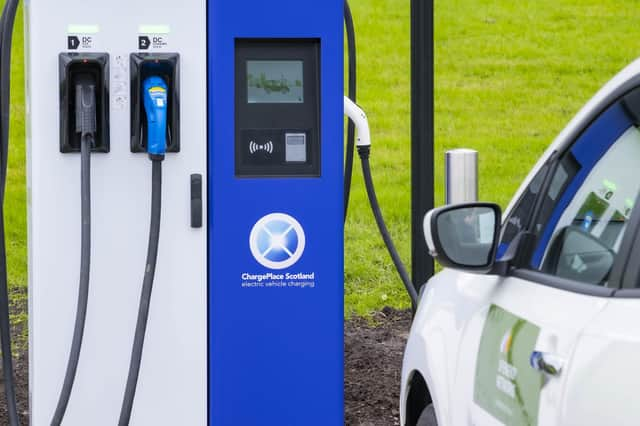Business comment: Car dealers face long road to recovery after bumpy couple of years


Hopes that a rebound in new car sales would follow several years of declines were sorely dashed in 2020 after the industry was hit hard by the pandemic.
Showrooms were forced to close their doors during lockdowns, motorists travelled no further than their local supermarket and businesses put fleet changeovers on the backburner. Forget all the talk of car buyers “pivoting” and clicking to buy en masse, the simple fact is most of us prefer to take the physical approach when making, what is typically, the second most expensive purchase in our lives. Prodding buttons, flipping the tailgate and grabbing some glossy brochures is an integral part of the car-buying experience.
Advertisement
Hide AdAdvertisement
Hide AdAfter the car crash that was 2020, last year saw only a modest recovery in new car sales.
This week’s industry numbers for March 2022 will have come as a grim reminder of the long road to recovery ahead.
In what is a key plate-change month, fewer vehicles were registered than in any March since 1998. There were year-on-year declines of more than 14 per cent despite some impressive EV numbers, which will have come as a bitter disappointment following 2021’s lacklustre performance.
But here’s the rub. Demand, we are told, remains robust, as reflected in the booming sales, and values, within the used car sector.
Faced with unreliable or at times non-existent public transport options, and with the social distancing messaging ringing in their ears, car buyers have been keen to grab a new set of wheels, only to be confronted with near-empty showrooms or the prospect of months of waiting for a new car order.
Factory shutdowns and a severe global shortage of semiconductors have dented the industry’s fortunes.
Now the cost-of-living crisis threatens to further test car dealers’ nerves. One silver lining for impulsive and impatient new car buyers could be an increase in cancelled orders.
On the flip side, as consumers’ belts are tightened, motorists may decide to skimp on servicing and maintenance - concerning not only on safety grounds, but throttling a lucrative income stream for those hard-pressed dealerships.
A message from the Editor:
Thank you for reading this article. We’re more reliant on your support than ever as the shift in consumer habits brought about by coronavirus impacts our advertisers. If you haven’t already, please consider supporting our trusted, fact-checked journalism by taking out a digital subscription: www.scotsman.com/subscriptions
Comments
Want to join the conversation? Please or to comment on this article.
